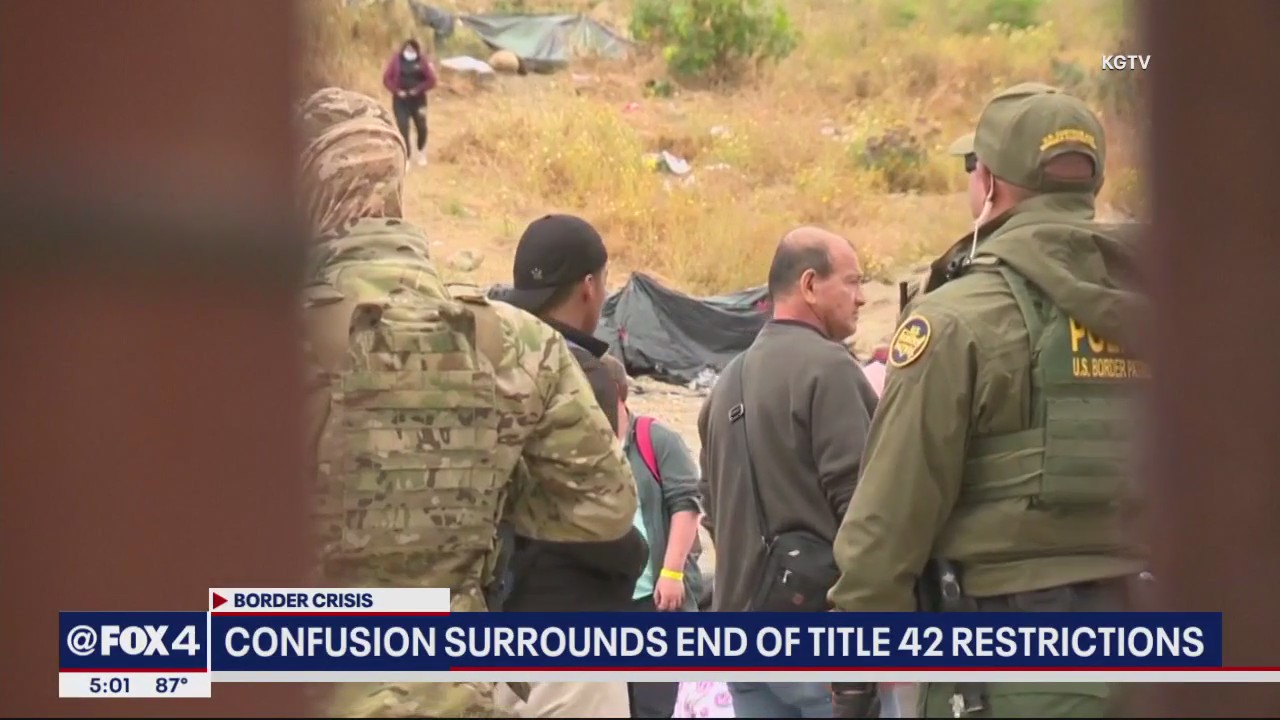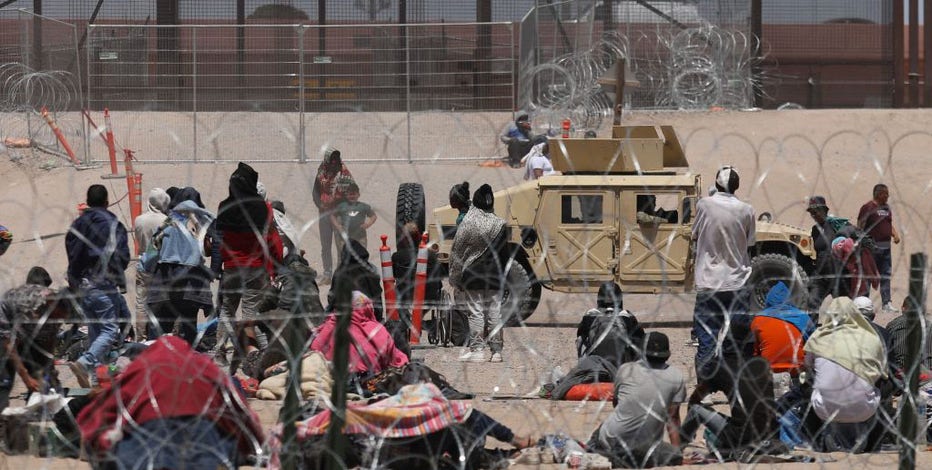Texas DPS 'preparing for the worst' at U.S.-Mexico border as Title 42 set to expire

Texas DPS 'preparing for the worst' at U.S.-Mexico border as Title 42 set to expire
Border agents and state troopers are trying to maintain order at the southern ports of entry as a major policy change for asylum seekers takes effect Thursday at midnight.
Border agents and state troopers are trying to maintain order at the southern ports of entry as a major policy change for asylum seekers takes effect Thursday at midnight.
Title 42 allowed the U.S. to immediately expel asylum seekers.
The policy is to be replaced with new, but confusing rules from the Biden administration.
That confusion, along with a lot of misinformation, have led to growing and restless crowds at the border.
Even before Thursday, Border Patrol had apprehended 30,000 migrants at the U.S.-Mexico border this week.
New video shows migrants who’ve just crossed the Rio Grande near Brownsville facing another hurdle once they make it to U.S. soil.
Texas DPS and National Guard recently started physically blocking migrants from entering.
Meanwhile, a group of Haitians across the border in Mexico listened to the rule changes.
It’s one of many groups of migrants that have congregated in border cities on the Mexico side in recent days.
It all has Texas and federal officials gearing up for challenging times ahead.

Texas DPS 'preparing for the worst' at U.S.-Mexico border as Title 42 set to expire
Border agents and state troopers are trying to maintain order at the southern ports of entry as a major policy change for asylum seekers takes effect Thursday at midnight.
The Homeland Security secretary is hoping new restrictions put in place stop migrants from crossing illegally and encourage them instead to apply for asylum through a new process.
The regional director of Texas DPS said troopers along the border are prepared for possible civil unrest.
The crowd of migrants at the southern border is growing by the thousands with Title 42 set to expire Thursday at midnight.
The state is deploying Texas National Guard soldiers and DPS troopers to help with security.
"We're preparing for the worst, we're ready for the worst, and we're going to carry on from there," Texas DPS Regional Director for West Texas Jose Sanchez said.
Title 42 used coronavirus restrictions on asylum that allowed the U.S. to quickly expel migrants at the U.S.-Mexico border for the last three years.
As the policy expires, the Biden administration is putting new restrictions into place to try to stop migrants from crossing illegally and encourage them instead to apply for asylum online through a new process.
"To those who do not use our available lawful pathways, we will deliver tougher consequences using our immigration law authorities," Department of Homeland Security Secretary Alejandro Mayorkas said.
Mayorkas said migrants who do not follow the new process will be immediately expelled and subject to at least a five-year ban on re-entry into the U.S., as well as facing criminal prosecution if they attempt to cross again.
"I want to be very clear, our borders are not open," Mayorkas said.
Border Patrol stations are meant to house migrants temporarily and don't have capacity to hold the volume of people coming.
Some stations are already too crowded.
The Border Patrol chief is allowing migrants to be released into the U.S. with a notice to check in at an immigration office within 60 days in response to overcrowding.
In Yuma, Arizona, local officials already say Border Patrol plans to release more than 140 migrants Friday.
"LULAC is working to ensure we have a guest workers permit to allow immigrants from these countries, along with Mexico, to come in and do the work on a temporary basis," LULAC President Domingo Garcia said.
FOX 4 talked with constitutional law attorney David Coale about the legal fallout from the end of Title 42.
"There'll be a lot of issues," he said.
The Biden administration is now turning away anyone seeking asylum who didn't first seek protection in a country they traveled through, or first applied online.
For many, that would mean first applying for asylum in Mexico or other parts of Latin America.
This is a version of a Trump administration policy that was overturned by the courts, so it's not clear whether this restriction will hold up. A lawsuit is expected.
"Any attempts to streamline one part of this process and make it easier to handle somebody or expedite somebody's case automatically puts somebody else at a disadvantage, and yes, opens that decision up to a potential court challenge," Coale explained.
For now, all eyes and resources -- state and federal -- are focused on the southern border.
"I believe our points of entry are going to be crowded with migrants trying to come through. Of course we're preparing for civil unrest," Sanchez said.
As of Wednesday, Border Patrol facilities in the Rio Grande Valley were already running at 140% capacity.
U.S. officials plan to open 100 regional migration hubs across the western hemisphere, where people can come to seek placement in another country, including Canada and Spain.
All of the changes are already leading to legal challenges.
Florida’s attorney general asked a judge Thursday to halt the release of asylum seekers without court dates.
The White House said in response: "USBP would have over 45,000 individuals in custody by the end of the month," if it does not release migrants.



